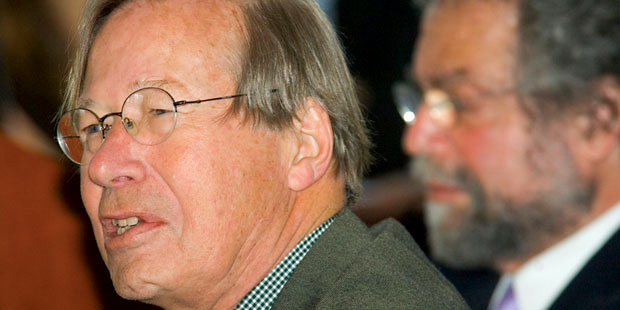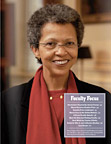Dworkin Tributes Held
Printer Friendly VersionProminent legal theorists gathered in Norway and New York to honor Professor Ronald Dworkin, winner of the prestigious 2007 Ludvig Holberg International Memorial Prize for outstanding scholarship. (See “Dworkin Wins Holberg Prize,” page 7.) Dworkin, who is Frank Henry Sommer Professor of Law and Philosophy at NYU and Emeritus Professor of Jurisprudence at University College London, is renowned for his work tying together philosophy and moral, legal and political issues.
At both day-long events, scholars gave presentations focusing on themes central to Dworkin’s work, and he, in turn, commented on each. At the Norway symposium, held last November at the University of Bergen, Professor Jeremy Waldron explored Dworkin’s theory of the role that integrity plays in the law. Waldron, who had Dworkin as his doctoral mentor at Oxford, noted Dworkin sees the legal enterprise as “primarily keeping faith with a coherent body of principle that governs all of us in the exercise of power over one another.”
The NYU seminar, in April, included talks from Cass Sunstein of the University of Chicago Law School and Lawrence Sager of the University of Texas School of Law. Sunstein spoke on his longheld view of judicial minimalism, the idea that judges should avoid sweeping pronouncements in their decisions. A few intellectual clashes occurred. In “Social Rights and Legal Interpretation,” Sager noted Dworkin’s work had influenced him, but took issue with his view that there are no social and economic rights enshrined in the U.S. Constitution.
Dworkin’s views also continued to surprise. NYU Law Professor and Vice Dean Liam Murphy, who organized the symposium, said he and others had known Dworkin a long time, yet “we all felt we had learned something new.” One example: Dworkin’s view about the connection between legal rights and the appropriateness of judicial review. Dworkin was clearly taken by the speakers. “There are many dimensions to the honor I’m receiving,” he said at the Norway meeting, “but perhaps the most significant is the character of the people who have come to help us celebrate this occasion, and I’m very grateful.”
—

